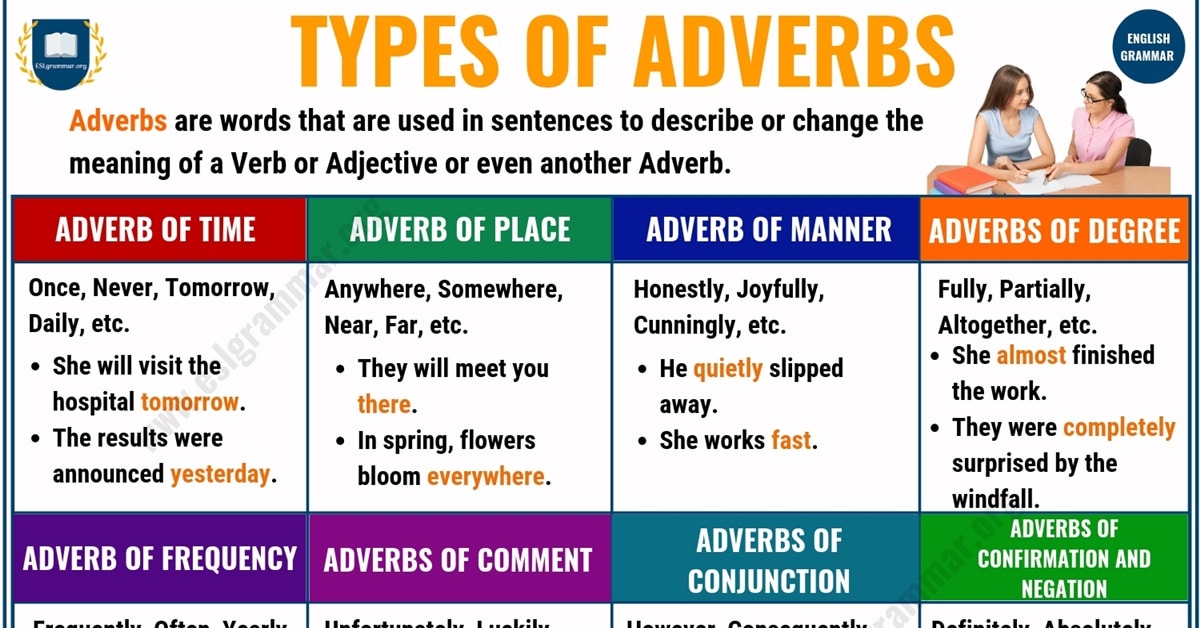Adverbs Of Time | Today, yesterday, in the afternoon, last night, last week, last year, two months ago, already, soon, still, finally, weekly, daily, every year, monthly etc. Adverbs clause of time worksheet with solved answers. Some of the worksheets for this concept are adverbs how when and where, name date adverb work, using adverbs work, adverbs work pdf with answers for grade 2, ffrreeqquueennccyy aaddvveerrbbss, adverbs work, name date grammar work adverbs of frequency, lesson plans for esl kids teachers. To talk about the future: The conventional order of an english sentence means the adverb goes between the subject and the main verb.
Adverbs of time modify the meaning of a sentence by telling us when, for how long, an action happens. 100+ list of adverbs of time pdf! They can provide a wide range of information. Some of the worksheets for this concept are adverbs how when and where, name date adverb work, using adverbs work, adverbs work pdf with answers for grade 2, ffrreeqquueennccyy aaddvveerrbbss, adverbs work, name date grammar work adverbs of frequency, lesson plans for esl kids teachers. The conventional order of an english sentence means the adverb goes between the subject and the main verb.

Adverbs of time tell us at what time (when) or for how long (duration) something happens or is the case. Adverbs of time are used to provide information about the time. Adverbios de tiempo adverbs of time express when the action of a verb occurs. 100+ list of adverbs of time pdf! To talk about the present: Give each student a copy of the worksheet. Adverbs of time (definite point of time) try doing the exercises by filling in the words having definite. Jacob worked at the store for two days every week last month. Adverbs of time two different exercises on adverbs of time id: In this lesson, we will focus on adverbs of time. Adverbs of time express when the action of a verb occurs. Adverbs of time adverbs of time tell us when an action happened, but also for how long, and how often. An adverb of time is just what you.
Soon, then, next week/month/year, in 2 days, tomorrow. Adverbs of time, definition and 51 example words adverbs of time answer the question when? Adverbs of time tell us at what time (when) or for how long (duration) something happens or is the case. An adverb is a word or phrase that modifies or qualifies an adjective, verb, or other adverb or a word group. There is also a specific category of time adverbs that describe frequency, or how often something happens or is the case;

Once done refer to the answers provided in the end of the exercise and check your progress. To talk about the future: Today, yesterday, in the afternoon, last night, last week, last year, two months ago, already, soon, still, finally, weekly, daily, every year, monthly etc. They start with the following subordinating conjunctions: List of adverbs of time They express a point in time. To talk about the present: The conventional order of an english sentence means the adverb goes between the subject and the main verb. What are adverbs of time? That said, with a negative adverb around, this. Soon, then, next week/month/year, in 2 days, tomorrow. Adverbs of time say us when an action which you are talking is done. It tells us when an action happened besides how long, how often.
Many adverbs of time are the same as adverbs of frequency. In this lesson, we will focus on adverbs of time. What are adverbs of time? Adverbs of time and definite frequency say when or how often something happens. Adverbs of time answer the question when?

There is quite a bit of overlap between these two types of adverbs. Some of the worksheets for this concept are adverbs how when and where, name date adverb work, using adverbs work, adverbs work pdf with answers for grade 2, ffrreeqquueennccyy aaddvveerrbbss, adverbs work, name date grammar work adverbs of frequency, lesson plans for esl kids teachers. Adverbs clause of time worksheet with solved answers. Adverbs of time modify a verb, adjective, or another adverb and tell us that for how much time, or on which time change happens. Jacob worked at the store for two days every week last month. The conventional order of an english sentence means the adverb goes between the subject and the main verb. Adverbs of time and definite frequency say when or how often something happens. Adverbs of time mainly modify verbs and tell us when something happens. 100+ list of adverbs of time pdf! In this post, you will find 28 examples of sentences with adverbs of time. They start with the following subordinating conjunctions: Yesterday, the day before, ago, last week/month/year. A word that tells the time of an action is called adverb of time.
Adverbs Of Time: However, their usage is a bit more complex, so we will examine those in a separate section.
0 comments:
Post a Comment